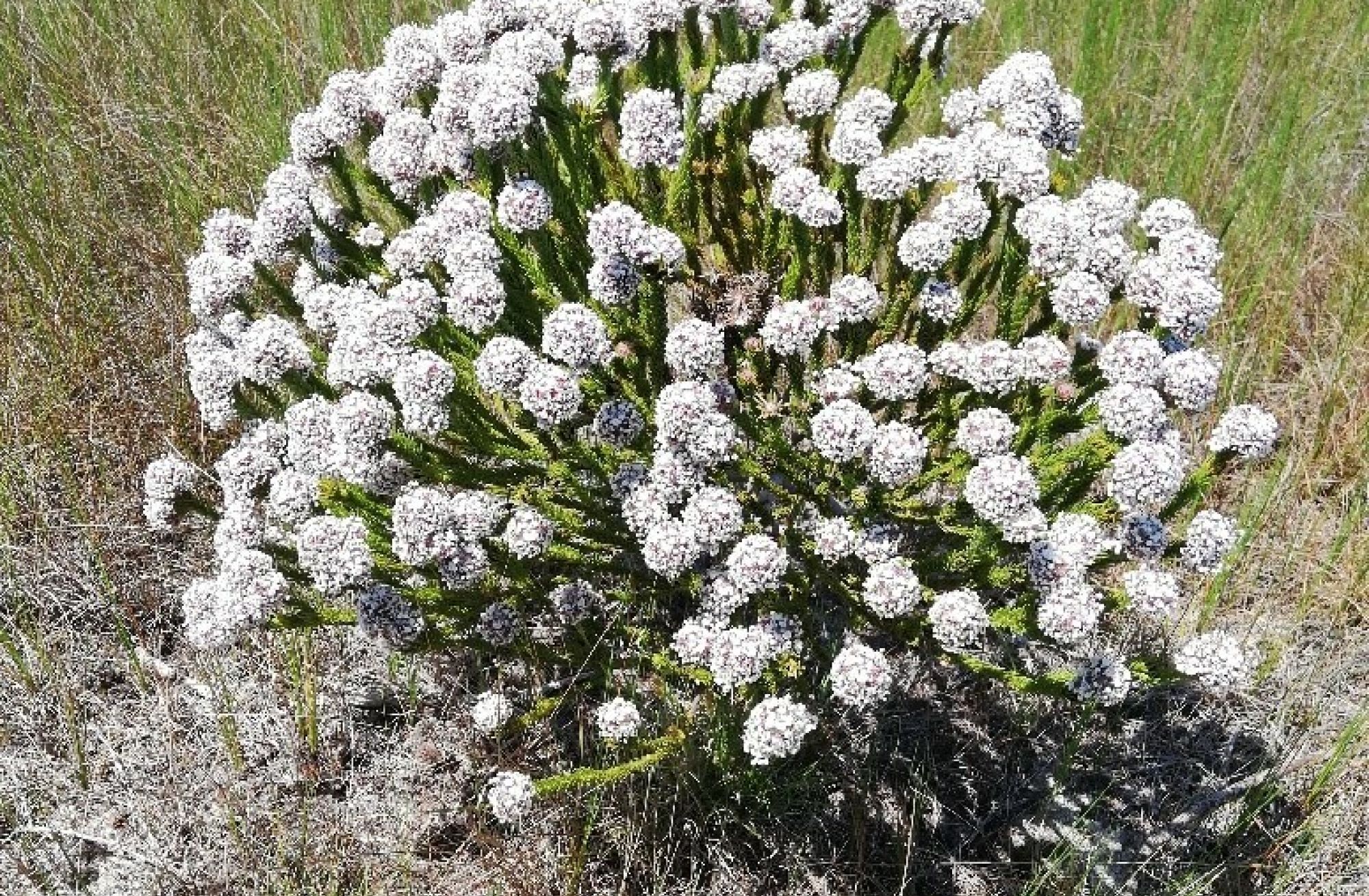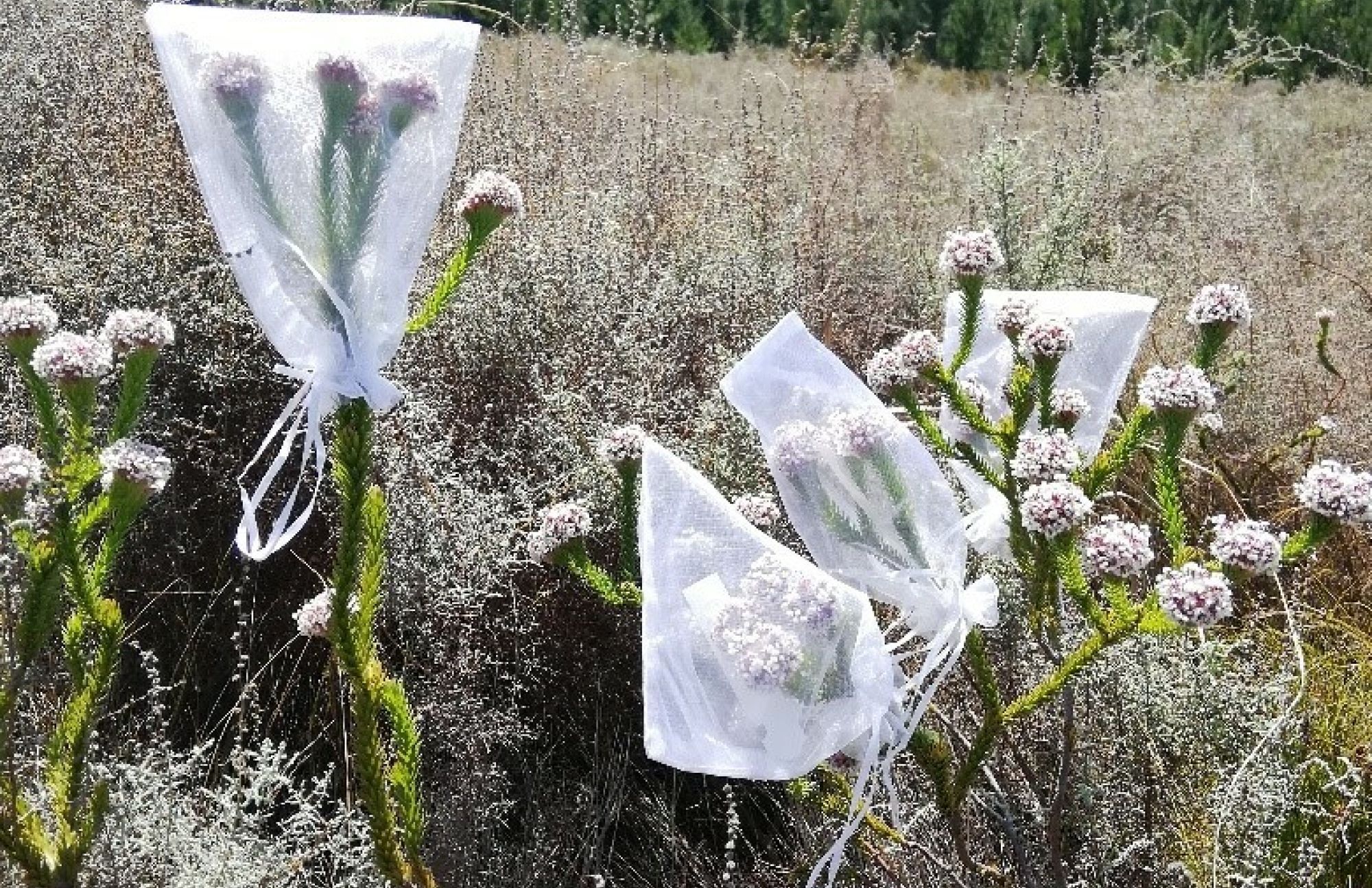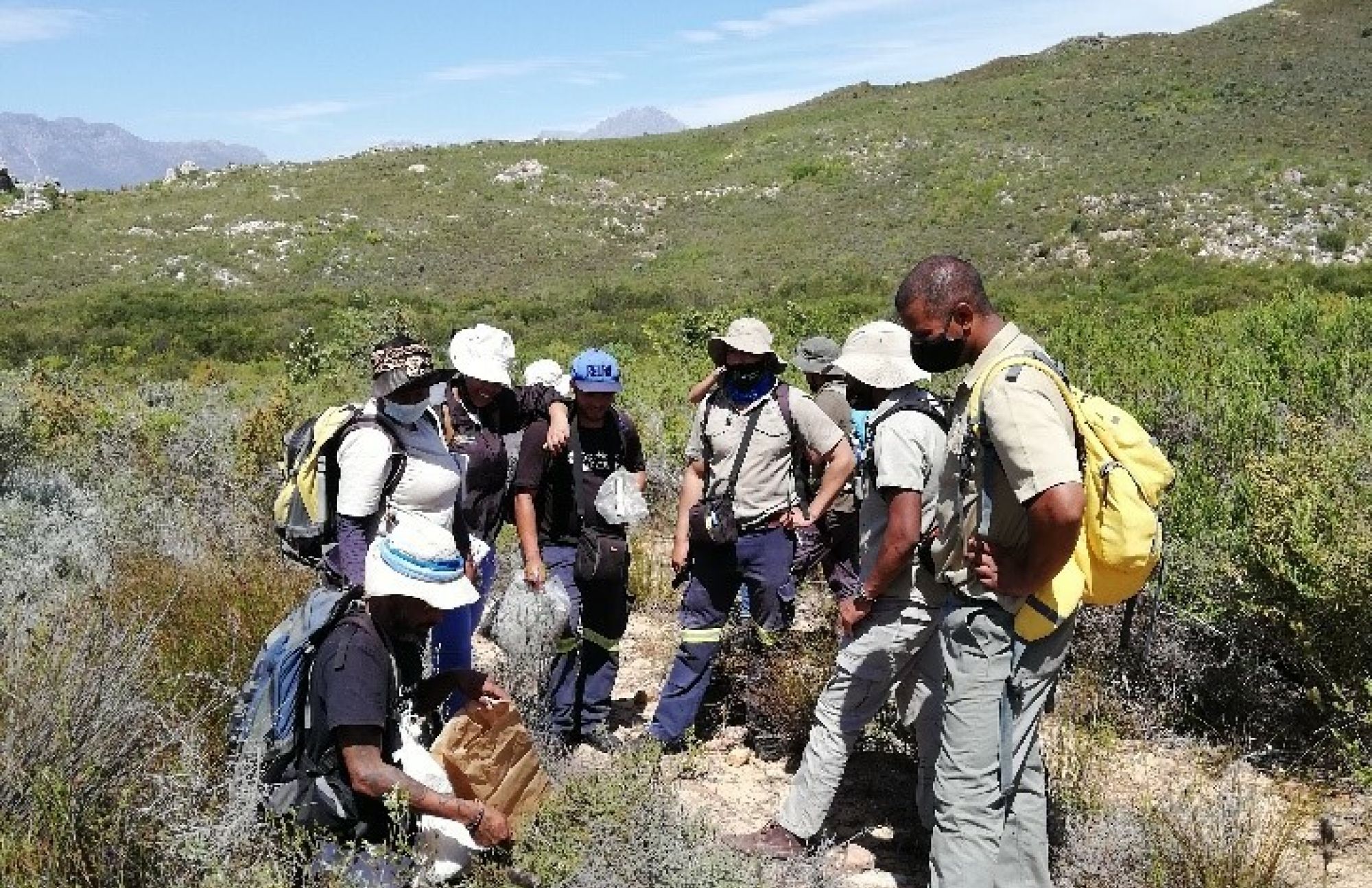
Rare plant monitoring at Waterval Nature Reserve
Waterval Nature Reserve is located close to Tulbagh and the name reflects on the spectacular waterfalls both on and off the reserve. Waterval Nature Reserve is home to an incredible variety of special plant species, one of which is the Critically Endangered Sorocephalus imbricatus. One of the populations is very heavily overgrown with Pinus pinaster. The pine infestation poses a serious problem to the long-term survival of the Critically Endangered species as well as other indigenous vegetation. A field visit by staff of CapeNature and SANBI (including horticulture staff, as well as members of CREW and the Millennium Seed Bank [MSB]) was conducted in October 2021 with the aim to come up with some measures in support of the prolonged conservation of this species.
The team monitored the status of populations of S. imbricatus (image 1). In addition, an experiment in hand-pollination was carried out where several plants were pollinated while other plants were identified to form part of a control group (image 2). Various cuttings were collected for propagation trials at Kirstenbosch. There is no information on any successful growing experiments on Sorocephalus species and thus the outcome of these trials will be highly informative.
Seeds of various plant species at Waterval Nature Reserve were collected for seed banking (image 3). SANBI signed a contract with the MSB at Kew Gardens in 2000, but is currently planning to build a seed bank facility for South Africa at Kirstenbosch. The MSB has provided a list of species that are banked. All species that are not on the current list, are being regarded as target species for seed collection and seed banking. Seeds collected are being prepared by the MSB for long-term storage. Until such time as the South African seed bank facility has been completed, seeds are being sent in batches to KEW MSB every few years.
The uniqueness of various plant species at Waterval Nature Reserve adds to the biodiversity importance of this reserve. CapeNature staff will continue to monitor some of the special plant species populations with a view to guaranteeing the long-term conservation of these important plants.








